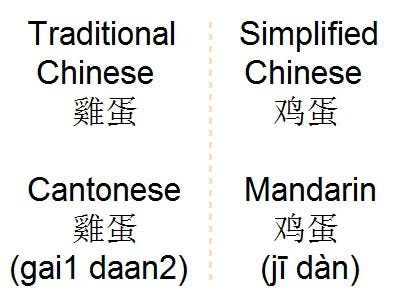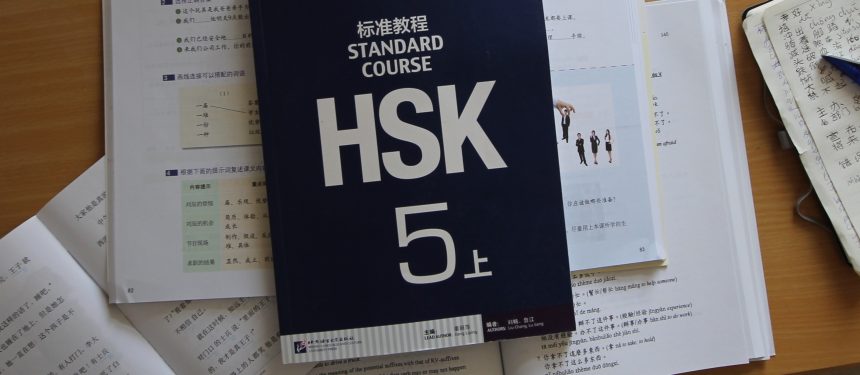Is it good to take the HSK to improve your Chinese? Is it worth taking this exam?
The HSK (Hanyu Shuiping Kaoshi) is the official Chinese language exam for foreign students. There are a total of 9 levels to the HSK, going from total beginner to advanced near-native. Is it worth your time to study and take the HSK test? Let’s review the pros and cons!
Pros and Cons of the HSK
Pro: Best way to measure improvement
If you want to be able to test and measure your Chinese language progress, the HSK curriculum is a great way to make sure you are learning the most commonly used and essential vocabulary and grammar in the spheres of reading, listening, writing, speaking, and translation. With accessible vocabulary lists, textbooks, and plenty of courses offered by the top Chinese universities, the HSK is a foolproof way to improve your Chinese in a logical way.
Especially if you study on your own, having the HSK curriculum as a guide can help you track your improvement, one HSK at a time!

Cons: Does not include slang/jokes/recent vocabulary
You might not need to know Chinese slang, internet words, or jokes for your Chinese exam. But if you want to chat with young Chinese friends your own age, date in Chinese, or be active on Chinese social media, you will need to do more than just the HSK.
The Chinese language is always evolving, with new terms and phrases introduced all the time. Of course, the HSK cannot always have the most updated phrases or trending keywords.
Studying for the HSK and being active on Chinese social media like Weibo, Douyin, and even your WeChat moments will give you a more rounded grasp of modern Chinese.

Pro: Great for applications and scholarships
The HSK is the best proof of your Chinese ability. Listing your HSK score on your resume, CV, or application is the best way to prove that you actually speak Chinese. Jobs, university applications, and even visa applications may require the listing of an HSK score.
For a Chinese-language Bachelor’s or Master’s, you’ll be required to have an HSK 5. Business Chinese programs usually require a base of HSK 3.
You can also gain in advantage when applying for scholarships if you have a high HSK score!
Con: Only in Putonghua Mandarin
The HSK is based on Putonghua, Standard Mandarin–the dialect originating from Beijing. This style of Mandarin Chinese has a neutral accent with five tones (four tones + the neutral tone”), except for the sound “er” at the end of a few words, as is common in northern China.
If you live in an area of China where locals use a different language (Cantonese, Hakka) or heavily accented Mandarin accent (southern China or smaller cities), you may have a lot of difficulty understanding them at first. The HSK doesn’t teach you alternate or local pronunciations.

Pro: Certify Mandarin fluency
The HSK is the best and one of the only ways to prove your Mandarin ability to employers and professors. Statements like “conversationally fluent” and “bilingual proficiency” are vague; listing your most recent HSK test level and score is a far better way to judge your skills.
If you want to learn Chinese for business, personal growth, studying, or traveling, the HSK is the best way to make sure you are learning useful vocabulary at a good pace on your road to fluency.

Con: No Traditional Chinese
The HSK is in Simplified Chinese–the Mandarin writing script primarily used on mainland China. Taiwan, Hong Kong, and several other overseas Chinese communities, as well as all Chinese documents written before 1950, use Traditional Chinese.
If you want to study in Taiwan, HK, or study Chinese literature/art/history, the HSK won’t teach you many Traditional Chinese.
Read More: Should I Learn Simplified or Traditional Chinese?
Pro: Covers basic Chinese culture and history
The HSK reading materials and vocabulary includes information about Chinese history, culture, literature, major cities and tourist sites, holidays and festivals, and more! You’ll discover Chinese culture through the HSK curriculum. Major parts of modern Chinese life such as WeChat, Alipay, scientific discoveries, and news items are also included in HSK materials.

Study for the HSK
If taking the HSK is something you want to do, there are many online course options for you to improve your Chinese at every level. Check them out here:
- Keep Your Chinese Language New Year Resolution: 4 Tips for 2025 - December 29, 2024
- 9 Best Schools to Study Chinese in Beijing in 2025! - December 27, 2024
- Learn Chinese in China 2025: Best Chinese Language Programs - December 20, 2024
